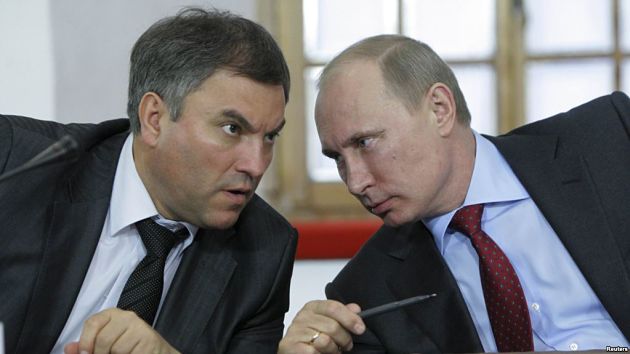Former Deputy Head of the Presidential Administration and current Speaker of the State Duma of the Russian Federation, Vyacheslav Volodin, in the presence of President Vladimir Putin, effectively called for a revision of the nominally functioning Constitution of the country. “In society, practically every time we approach a memorable date and discuss issues related to the norms and provisions of the Constitution, questions arise: how effective they are and to what extent they have lost their essence today,” he said. “A law, even such a fundamental one, is not a dogma,” Volodin added.
Volodin suggested that judges of the Constitutional Court, leading scholars in the field of constitutional law and experts should be involved in the process of assessing the relevance of the norms and provisions of the Constitution. The “guarantor of the Constitution,” who had repeatedly sworn to uphold it upon taking office, did not reject this provocative proposal. Instead, he responded evasively (or simply out of turn?) by proposing to “initiate an independent civilian review of all draft laws. It remains unclear how this relates to draft laws when the issue is the constitution and its meaning, but lately the answers of the “national leader” have become increasingly incomprehensible.
But this is not important. Few believe that such a public encroachment on the Constitution, which remained inviolable (on paper) throughout Putin’s years in power, could not have been coordinated beforehand. And if we were to entertain such a fantasy, no one would believe that Putin, who has repeatedly rejected all proposals to amend it, would not do so demonstratively and unequivocally this time.
But apparently the time has come to finally take off the masks. The main reason for this, of course, is the need to solve the problem of keeping the “national leader” in power, whose current term as head of state is, according to the Constitution, the last. The method of solving this problem – whether by introducing a lifelong presidency, a new position of an unchanging national leader, or some other way – is apparently still undecided in the Kremlin.
However, this is completely unimportant, as this is a case where changing the order of terms does not change the sum. What is important is the possibility of simultaneously changing those provisions of the Constitution that determine the (declarative) nature of the state, society, and the place of the individual and the citizen within them.
After all, as anyone who reads them today in Putin’s Russia can judge, they have long since ceased to be relevant. Thus, one can assume that instead of the dominance of human rights, the priority will soon be “spiritual unity” instead of religious equality – the “special role of Orthodoxy”, instead of the absence of a state ideology – “patriotism” as such, and so on.

